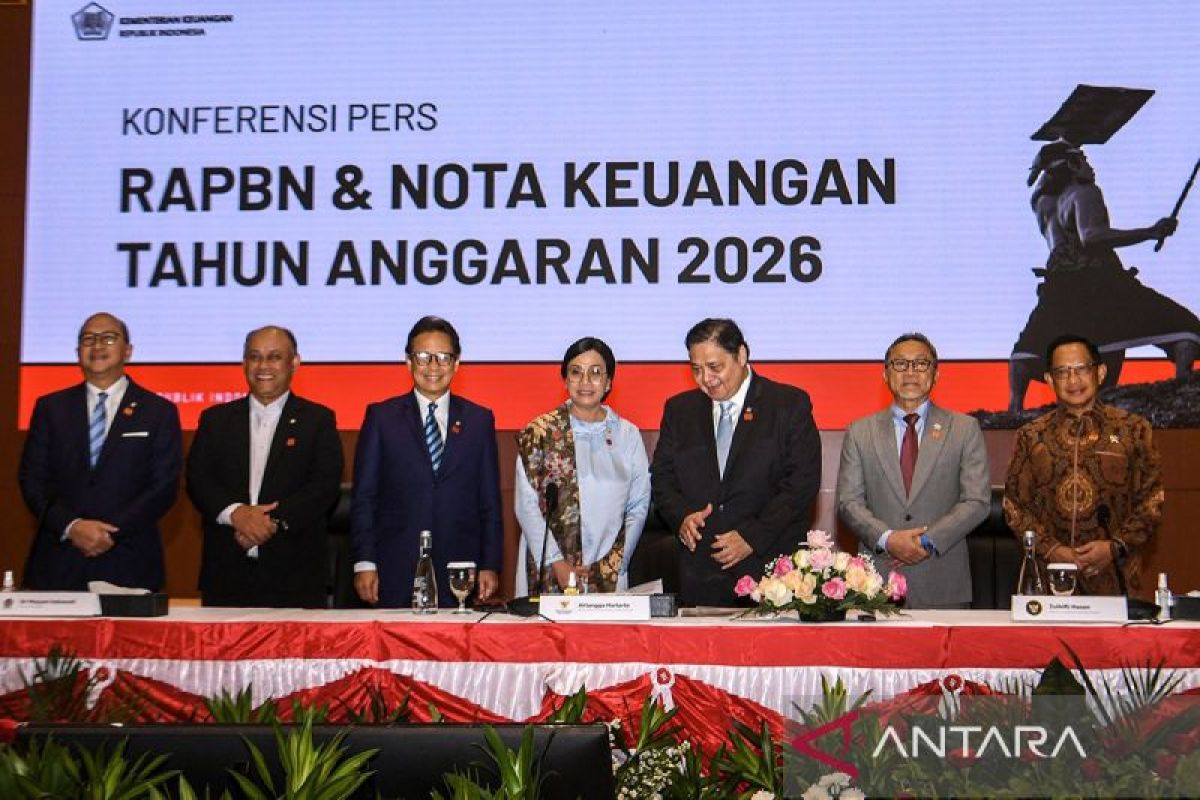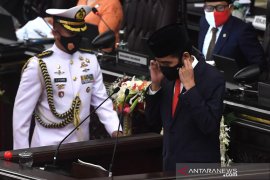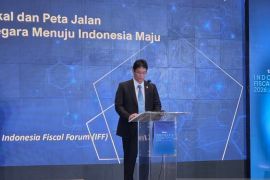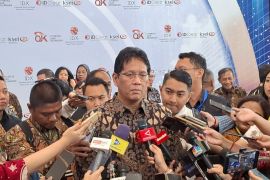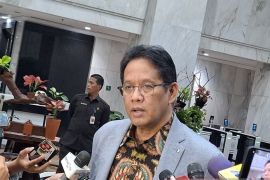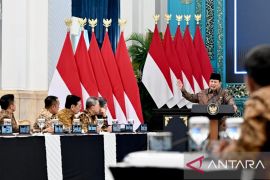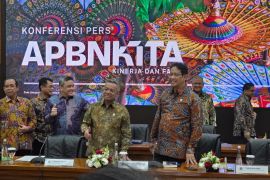More than a spending plan, the RAPBN serves as a compass for the nation’s progress over the coming year. To some extent, Prabowo benefitted from his predecessor, Seventh President Joko Widodo, who tailored the 2025 RAPBN to support the incoming administration.
In his State of the Nation Address, the eighth president stressed that the 2026 State Budget (APBN) will focus on essential public services and people’s needs, with emphasis on food and energy security, the economy, and defense.
He underscored the importance of prudence and credibility in the budget by optimizing revenue, improving spending quality, and fostering financing innovations.
Through his first RAPBN, Prabowo signaled that national wealth will not only cover routine expenditures but also serve as a genuine driver of economic growth.
His speech reflected the government’s intent to ensure that every rupiah is spent wisely, becoming a catalyst for productivity, job creation, and stronger foundations for national self-reliance.
Despite a more expansive fiscal stance for 2026, the government seeks to balance growth ambitions with financial prudence. As the backbone of policy, the APBN plays a crucial role in shaping the country’s economic trajectory, influencing monetary stability and the balance of payments.
For these reasons, the 2026 RAPBN stands not merely as the state treasury but as a fiscal blueprint that will test Indonesia’s capacity to withstand global pressures and challenges ahead.
Fiscal outlook for 2026
Amid limited fiscal space, the Indonesian government aims to ensure that every rupiah in the 2026 APBN is allocated to productive and quality-driven purposes, reinforcing efficiency across all programs.
The president has stressed a clear principle: state spending must bring tangible benefits, support job creation, strengthen purchasing power, and enhance public services.
A flagship initiative is the Free Nutritious Meals (MBG) program, which gained momentum under the 2025 budget. Beyond improving human resources through better nutrition, MBG is envisioned as a tool to reduce unemployment, create business opportunities, and tap into local food potential, ultimately bolstering the economy.
The 2026 RAPBN allocates Rp335 trillion (US$20.6 billion) for MBG, targeting 82.9 million beneficiaries, including schoolchildren, pregnant women, breastfeeding mothers, and toddlers.
Other allocations include Rp164.4 trillion (US$10.1 billion) for food security, Rp224 trillion (US$13.8 billion) for health, Rp402.4 trillion (US$24.8 billion) for energy security, and Rp757 trillion (US$46.8 billion) for education.
Prabowo also reaffirmed his commitment to advancing Red and White Village Cooperatives, optimizing the sovereign wealth fund Danantara to attract investment, and building three million affordable homes for those in need.
Altogether, the 2026 budget stands at Rp3,786.6 trillion (US$234 billion), including Rp650 trillion in transfers to regional governments across the country.
Despite next year’s spending projection being expansive, the government still aims to cap the budget deficit at Rp638.8 trillion (around US$39.49 billion) from state revenue of Rp3,147.7 trillion (about US$194.6 billion). The targeted deficit represents 2.48 percent of gross domestic product (GDP), more ambitious than the 2.78 percent target set for 2025.
While deeming the 2026 deficit goal realistic, an economist from the University of Indonesia’s Faculty of Economics and Business, Teuku Riefky, warned the government of potential adverse implications for fiscal space. He therefore suggested stricter efficiency.
Taking a more conservative view, the chief economist of Permata Bank, Josua Pardede, believed that next year’s deficit might go as low as 2.70 percent of GDP and the economic growth rate as high as 5.05 percent, lower than the president’s target of 5.4 percent.
Meanwhile, Paramadina University economist Wijayanto Samirin argued that the 2.48 percent deficit is only achievable if the government exerts even greater efforts to pursue fiscal prudence and efficiency. Otherwise, the deficit might instead go up to three percent of GDP.
Though the expected deficit rate is more or less within reach, the 2026 fiscal outlook has indeed prompted the government to exercise discipline and prudence even more because expansive spending is conceivable only if supported by solid revenue.
In short, it is inevitable for the government to ensure that the APBN is reliable for both sustaining basic necessities and financing development efforts amid increasingly complex global challenges.
A call for balancing
The government is resolute in leveraging the 2026 budget strictly for concretely productive and beneficial initiatives, and for this, pursuing strong streams of revenue is non-negotiable.
As mentioned earlier, the 2026 RAPBN targets Indonesia to gain over Rp3,100 trillion in revenue, representing a 9.8 percent hike compared to this year’s outlook of Rp2,865.5 trillion. To this end, the government bets on staggering projected tax revenue of Rp2,357.7 trillion, 13.5 percent higher than this year’s target.
Finance Minister Sri Mulyani Indrawati acknowledged that the projections are ambitious, especially given modest revenue growth of 2.4 percent in 2024 and 0.5 percent forecast for 2025.
She stressed that no new taxes are planned, with the government instead focusing on internal reforms, including the Coretax system and stronger data integration across ministries and agencies.
Additional measures include reforming the tax collection system for domestic and cross-border digital transactions and conducting joint programs for data analysis, supervision, audits, intelligence, and tax compliance, as well as providing incentives to boost consumer spending, investment, and downstream industries.
She added that the tax revenue target also takes into account the 5.4 percent economic growth and 2.5 percent inflation assumptions outlined in the 2026 RAPBN, as well as the elasticity of revenue to GDP currently hovering between seven and nine percent.
In this context, Paramadina’s economist Samirin, however, warned that increasing tax rates would hurt competitiveness. Instead, he urged greater efforts to address the shadow economy, which accounts for an estimated 23.6 percent of GDP.
Tackling unregistered activities such as illicit goods, excise evasion, and smuggling of second-hand clothing or textiles could yield up to Rp500 trillion (US$30.7 billion) in additional tax revenue.
Alongside higher revenue targets, the government also seeks to solidify revenue by setting a higher tax ratio of 10.47 percent of GDP in 2026, a break from a trend of declines apparent over the past few years—10.31 percent in 2023, 10.08 percent in 2024, and 10.03 percent projected in 2025.
Additionally, the government aims to maintain the debt-to-GDP ratio at around 39.96 percent in 2026 -- representing no significant alterations compared to the past few years -- by creating financial innovations and optimizing various key institutions, such as the Indonesia Investment Authority and Danantara.
Furthermore, the accumulated budget surplus will remain a fiscal buffer against market volatility often triggered by external factors such as U.S. economic dynamics and global policy shifts beyond the government's control.
With these measures, the government expects economic growth of 5.4 percent in 2026, underpinned by consistent and equitable fiscal policies.
Prabowo has emphasized that tax should serve as an instrument of fair wealth distribution, while consistency in implementation and oversight will be vital for sustaining economic progress in the medium and long term .
In the end, the real test of the 2026 RAPBN lies not in its ambitious figures, but in its capacity to meet public needs. Next year’s budget must go beyond being a statement of intent, proving instead that the government can balance prudence with progress.
The ambitious yet realistic fiscal master plan should be complemented with consistency, integrity, and zeal to tackle the shadow economy for the sake of economic stability and improved people’s welfare.
Related news: Prabowo sets 2026 budget focus on food, energy, and education
Translator: Rizka K, Tegar Nurfitra
Editor: Primayanti
Copyright © ANTARA 2025
